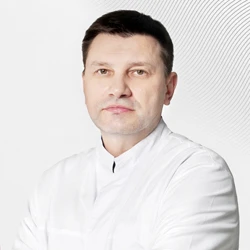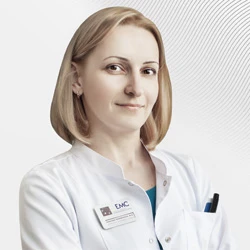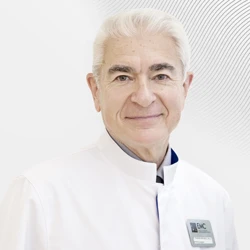Many people know that the only method of weight loss that guarantees long—term and significant results is bariatric surgery (from other Greek βάρος - weight, severity, and ἰατρεία — treatment).
Unlike cosmetology and plastic surgery, which are aimed at eliminating body defects, bariatric surgery is performed on the organs of the digestive tract, resulting in either a significant reduction in the amount of food consumed or a restriction of its absorption in the intestinal tract.
In this article, we will tell you how to prepare for your first visit to a bariatric surgeon.
How do I choose a clinic?
Choosing a clinic and doctor is a very important step in the process of preparing for bariatric surgery. On the websites of most surgical clinics that perform bariatric surgeries, detailed information about the clinic, surgeons, types of operations, and postoperative management of patients is available.
Many bariatric surgeons conduct seminars for patients before and after surgery. Such meetings are also held in the EMC.
During such meetings, the surgeon and other doctors who prepare the patient for surgery and supervise him in the process of weight loss after treatment make presentations, and patients who have already undergone surgery take part in the discussion. Attending such a meeting may be your first "consultation." You will be able to ask all your questions without any obligations. Everything you learn from doctors and patients at the meeting will help you understand whether the surgical method of treating excess weight is suitable for you, what to expect from surgery, and whether you are ready to strictly follow the proposed treatment plan. Perhaps after this meeting you will decide to try conservative methods of treating obesity again, or maybe immediately sign up for a free consultation with a bariatric surgeon. In any case, this will be your decisive step towards fighting for a healthy weight.
Choosing a clinic and doctor is a very important step in the process of preparing for bariatric surgery. On the websites of most surgical clinics that perform bariatric surgeries, detailed information about the clinic, surgeons, types of operations, and postoperative management of patients is available.
Many bariatric surgeons conduct seminars for patients before and after surgery. Such meetings are also held in the EMC.
During such meetings, the surgeon and other doctors who prepare the patient for surgery and supervise him in the process of weight loss after treatment make presentations, and patients who have already undergone surgery take part in the discussion. Attending such a meeting may be your first "consultation." You will be able to ask all your questions without any obligations. Everything you learn from doctors and patients at the meeting will help you understand whether the surgical method of treating excess weight is suitable for you, what to expect from surgery, and whether you are ready to strictly follow the proposed treatment plan. Perhaps after this meeting you will decide to try conservative methods of treating obesity again, or maybe immediately sign up for a free consultation with a bariatric surgeon. In any case, this will be your decisive step towards fighting for a healthy weight.
First consultation with a bariatric surgeon
The purpose of the first consultation with a surgeon is to discuss the possibilities of solving your problem, taking into account the amount of excess weight, concomitant diseases, lifestyle and many other factors that may affect the choice of treatment. Your decision to come to the consultation is an opportunity to learn more about bariatric surgery, and an opportunity to discuss the pros and cons of surgical treatment of obesity. It is not necessary that you will be recommended a surgical method for the treatment of excess weight, but it is worth talking about it.
At the consultation, you should tell your doctor the story of your personal struggle with being overweight, and what results you have achieved. Bring to the consultation the results of research, extracts — anything that can give the doctor additional important information about your health status in recent years.
The purpose of the first consultation with a surgeon is to discuss the possibilities of solving your problem, taking into account the amount of excess weight, concomitant diseases, lifestyle and many other factors that may affect the choice of treatment. Your decision to come to the consultation is an opportunity to learn more about bariatric surgery, and an opportunity to discuss the pros and cons of surgical treatment of obesity. It is not necessary that you will be recommended a surgical method for the treatment of excess weight, but it is worth talking about it.
At the consultation, you should tell your doctor the story of your personal struggle with being overweight, and what results you have achieved. Bring to the consultation the results of research, extracts — anything that can give the doctor additional important information about your health status in recent years.
At your first meeting with a bariatric surgeon, ask questions that will help you decide on the right clinic and doctor.:
-
How many bariatric surgeries does a doctor perform per year?
-
Which specialists will be involved in the treatment together with the surgeon?
-
What type of surgery can be recommended in your case?
-
How will your life change after surgery?
-
What are the most common complications that occur during the surgery that is recommended to you?
-
Are all operations performed laparoscopically (through small punctures), is it possible to switch to an "open" operation?
-
How often will you have to visit the clinic's specialists after surgery, which ones, and for what purpose?
-
Is there a support group for bariatric patients in this clinic?
-
Does the clinic have specialized equipment and furniture for working with heavy patients (operating tables, gurneys, beds, bathrooms, special scales, etc.)?We recommend that you come to a bariatric surgeon with a pre-prepared list of questions. After the first consultation, you should have no questions about the general principles of treatment of overweight patients in this clinic.
The first consultation of a bariatric surgeon at the EMC.
Types of operations performed by a bariatric surgeon in the EMC:
Gastric ballooning. The intragastric balloon is a thin-walled silicone bubble that is installed in the stomach. In the stomach, this bubble fills with saline solution and takes the form of a smooth soft ball, occupying a significant part of the stomach. Consequently, the amount of food that a person can eat decreases. In addition, an inflated gastric balloon stretches the stomach wall, which leads to irritation of the saturation receptors. This irritation leads to an early feeling of fullness.
Gastric bandaging.A silicone cuff or gastric band is placed around the upper part of the stomach, which narrows the stomach cavity and thus regulates the speed of food movement through it. The part of the stomach above the cuff stretches, causing a feeling of fullness and reducing the amount of food consumed.
Longitudinal (sleeve, vertical) gastric resection is one of the most demanded operations today. During this operation, most of the stomach (85%) is removed, and a narrow tube with a diameter of 2-2.5 cm is formed. Weight loss occurs by reducing the amount of food consumed and removing the area of the stomach that produces the hormone that regulates appetite.
Gastric bypass surgery. During this operation, a "small stomach" with a volume of 20-30 ml is formed at the end of the esophagus, and the ingested food is directed, bypassing the large stomach, duodenum and the beginning of the small intestine, directly into the small intestine.
Knowledge of all types of operations by a bariatric surgeon, as well as experience in performing such operations in other patients, does not mean that all of them can be shown to you. Together with a bariatric surgeon and, if necessary, after consulting with other specialists, you will have to choose a technique that will help achieve the desired result.
If the decision to perform bariatric surgery is made, then other EMC doctors are involved in the patient's management, who participate in choosing the treatment method for an overweight patient, prepare him for surgery and continue to monitor him after surgery.
Was this information helpful?
Questions and answers
Ask a Question





.webp)







.webp)

.webp)
.webp)





.webp)


